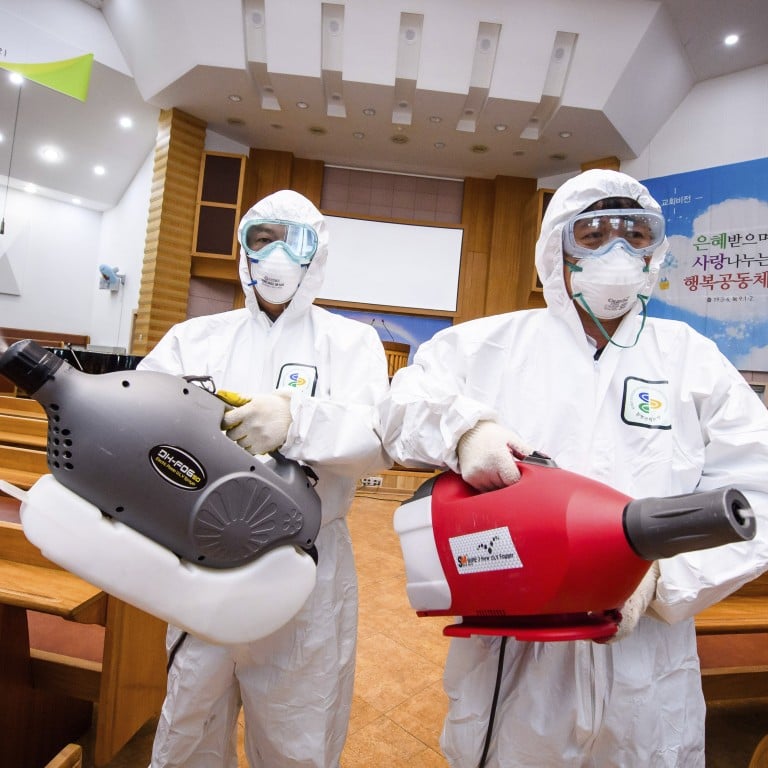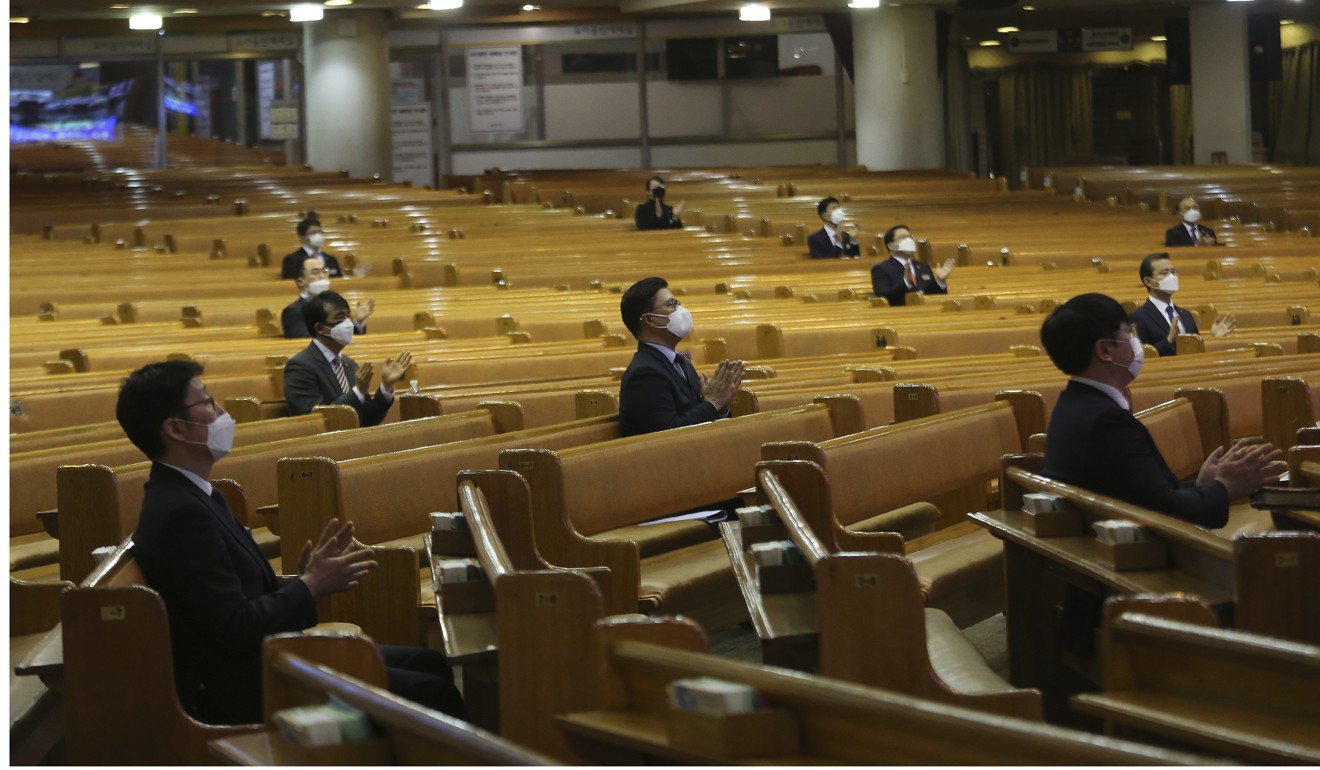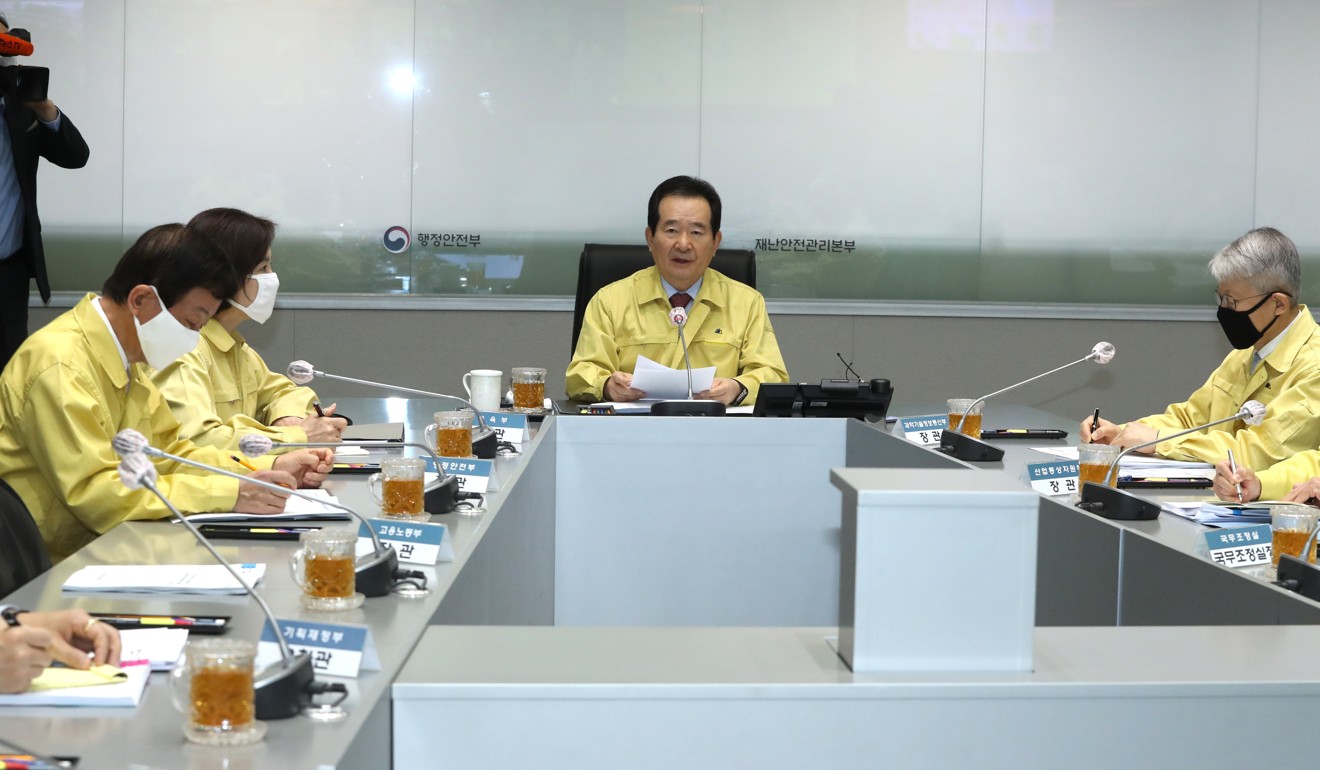
Coronavirus cluster emerges at another South Korean church, as others press ahead with Sunday services
- The controversial Manmin Central Church in Seoul, whose pastor Lee Jae-rok is in prison for rape, has been linked to 22 Covid-19 cases
- This comes as many South Korean churches went ahead with services on Sunday, despite pleas for social distancing
Health authorities have been tracing close contacts of at least 200 church-goers after a member of the Manmin Central Church in Seoul’s western district of Guro tested positive for Covid-19 on Wednesday.
As of Sunday afternoon, 22 people linked to the church, including a female pastor, had tested positive.
Infections occurred when about 200 members of the church gathered in early March to prepare video footage to use in online worship services in response to government guidelines for social distancing, according to the Korea Centres for Disease Control and Prevention.

Some 70 other members of the church also on March 5 travelled to the southern county of Muan, the birthplace of the church’s founder Lee Jae-rok, to celebrate the 20th anniversary of his most famous “miracle” – allegedly making the salty water in a fountain drinkable to ease chronic potable water shortages in the county.
Pastor Lee has been in prison since May 2018 after he was arrested for raping nine female followers – some of who believed he was a living god – over several years.
Three of the women went public as South Korea experienced a wave of #MeToo accusations, describing how he had summoned each of them to a flat and raped them. The Supreme Court in August upheld his 16-year prison term.
Lee, 76, set up the church in Guro district, once a backwater area of Seoul, with just 12 followers in 1982. Using his supposed healing powers to attract new members, he grew his congregation to 130,000, but his conviction has reportedly resulted in a sharp decrease in congregants.
The church has a spotlight-filled auditorium, sprawling headquarters and a website replete with claims of miracle cures.
This is the latest in a series of church-related clusters in South Korea, where many churches have pushed ahead with services.
Churches in other cities – Suwon, Busan, Geochang and Bucheon – also reported clusters numbering up to 22 people.
Coronavirus: South Korea threatens to close churches
Prime Minister Chung Sye-kyun warned that “stern” legal action would be taken against churches violating orders that they must ensure a distance of at least two metres between people at services and check the temperature of congregants.
Some followers clashed with police as the church pressed ahead with services on Sunday despite a two-week administrative order requiring the church to ban offline worship services till April 5 for violating the quarantine guidelines. All members violating the order face a penalty up to 3 million won (US$2,500).

The country’s health ministry has advised public facilities such as religious institutions, nightclubs and indoor gyms to close from March 22 to April 5 as part of measures to contain the virus.
The Christian Council of Korea, an umbrella group of protestant churches, accused the government of “trampling down” on religion, asserting Sunday services are at the centre of their faith.
Pastor Bang In-sung, a reformist campaigner, told JTBC TV: “Most Korean churches are small in scale and if they stop worship sessions for a month or so, it would cause financial difficulties to them.”
Hundreds ignore virus gatherings ban to attend Louisiana church services
Religion is widespread in technologically advanced South Korea, with 44 per cent of people identifying themselves as believers. A 2015 government survey found 28 per cent belonged to Christian churches and 16 per cent described themselves as Buddhist.
Most belong to mainstream churches, which can accumulate wealth and influence as followers donate as much as 10 per cent of their income.
But fringe groups are also widespread, especially ones that claim to offer a path to material and spiritual prosperity. According to Park Hyung-tak, head of the Korea Christian Heresy Research Institute, around 2 million people are followers of cults.
Religious experts say around 60 people in the country claim to be divine – and some have been implicated in fraud, brainwashing, coercion, and other behaviour associated with cults worldwide.
South Korea has reported 9,583 confirmed cases of Covid-19, according to the Korea Centres for Disease Control and Prevention.
Additional reporting by Agence France-Presse

